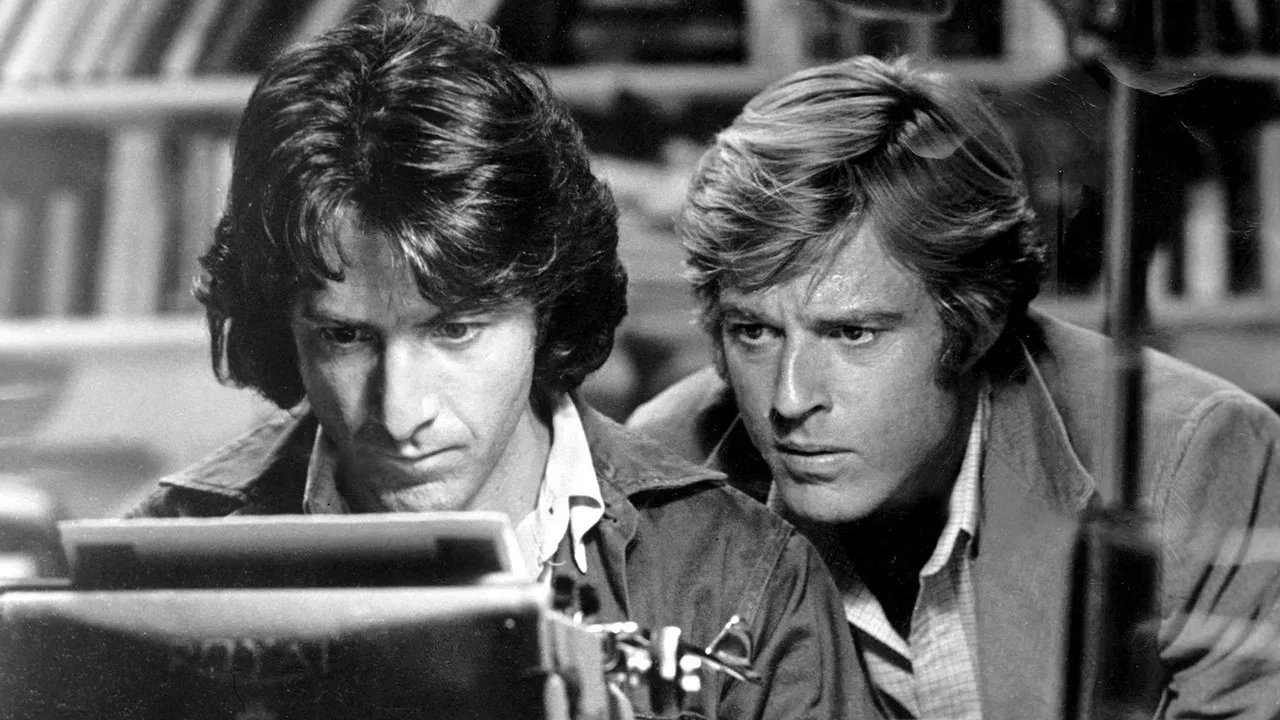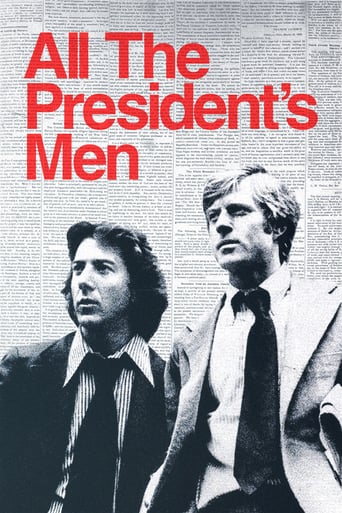

It isn't all that great, actually. Really cheesy and very predicable of how certain scenes are gonna turn play out. However, I guess that's the charm of it all, because I would consider this one of my guilty pleasures.
... View MoreA lot of perfectly good film show their cards early, establish a unique premise and let the audience explore a topic at a leisurely pace, without much in terms of surprise. this film is not one of those films.
... View MoreThe movie is made so realistic it has a lot of that WoW feeling at the right moments and never tooo over the top. the suspense is done so well and the emotion is felt. Very well put together with the music and all.
... View MoreI enjoyed watching this film and would recommend other to give it a try , (as I am) but this movie, although enjoyable to watch due to the better than average acting fails to add anything new to its storyline that is all too familiar to these types of movies.
... View MoreALL THE PRESIDENT'S MEN is not only a stunning addition to the 1970s wave of conspiracy thrillers but also a great film dealing with the subject of journalism, up there with SPOTLIGHT as the best of its type. The story, which all true and about how two Washington Post reporters broke the Watergate scandal, is completely riveting, one of those suspense-fuelled movies that works despite not relying on generic action cliches or even an exciting score. The completely likeable Robert Redford and Dustin Hoffmann are perfectly cast as the intrepid reporters who refuse to take no for an answer, but the whole cast is spot on here. It's a film which just runs and runs and runs, ever complex yet easy to follow, that might just be one of the most important movies of the decade.
... View MoreWe're in June 2017 and "All The Presiden's Men" from 1976 reminds us that film, sometimes, is the strongest historical document we've got. The Washington Post raising alarm signs then and now. Alan J Pakula is one of the greatest directors of his generation. Jane Fonda during her AFI Lifetime Achievement Award told us that working with Alan J Pakula was like dancing with Fred Astaire. Here the chemistry between Robert Redford and Dustin Hoffman is such that, at times, it feels like a romantic comedy, warts and all. Astonishing. Hal Holbrook as Deep Throat gives the feeling of "thriller" to this incredible story. We know how the story ends but that doesn't diminish our nervousness that it's perhaps a bit of impatience, just like now in 2017, to see justice be done.
... View MoreWith the 2016 presidential election over (pending the Electoral College vote of course), All the President's Men is more relevant than ever. Let the media stand up to the power.The freedom of the press is something that rubs our elected (and non- elected) officials up the wrong way, but we should be thankful for Woodward and Bernstein for their integrity in the face of an electoral landslide from 1972. This movie is gripping even though there's no car chases and Basic Instinct sex scenes. Anyway, if you're into Fast and/or the Furious, then please move on. This movie is not for you I'm afraid.
... View MoreI was recommended from a classmate that I should watch it since I've never seen it nor heard of it before. A few days ago, i got to finally watch it. My god, Dustin Hoffman looked so different with his long boyish hair. I'm more use to him having short hair in his later years. Himself and Robert Redford were absolutely brilliant together. They really should've done more movies with each other, it would make more sense!In relation to this movie, it really opens your eyes of how Richard Nixon was such a crook. Sure every poliction you meet is a greedy crook anyway so he ain't the only one in that sense! The case really interests you as in how everything went bellyup and out of control. The real Carl Bernstein and Bob Woodward didn't have an easy life in their careers. They pretty much had like a rough time to get the information that needed from Nixons people to be on the Washington Post. At the same time, they are well capable men and they knew well what to do in order to get Nixon and his crooners down. Seriously, even if its a long movie, you would enjoy watching it if you were in a politic mood!
... View More